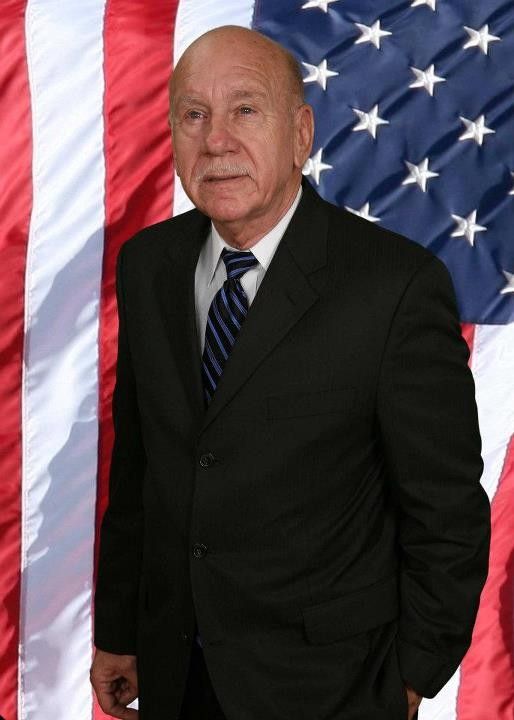28th Amendment, 35 States and Counting
It will take you less than a minute to read this.
Children of Congress members do not have to pay back their college student loans.
Staffers of Congress family members are also exempt from having to payback student loans.
Members of Congress can retire at full pay after only one term.
Members of Congress have exempted themselves from many of the laws they have passed, under which ordinary citizens must live.
For example, they are exempt from any fear of prosecution for sexual harassment.
And as the latest example, they have exempted themselves from Healthcare Reform, in all of its aspects.
We must not tolerate an elite class of such people, elected as public servants and then putting themselves above the law.
I truly don’t care if they are Democrat, Republican, Independent, or whatever.
The self-serving must stop.
Governors of 35 states have filed suit against the Federal Government for
imposing unlawful burdens upon their states. It only takes 38 (of the 50) States to convene a Constitutional Convention.
Proposed 28th Amendment to the United States Constitution:
“Congress shall make no law that applies to the citizens of the United States that does not apply equally to the Senators and/or
Representatives; and, Congress shall make no law that applies to the Senators and/or
Representatives that does not apply equally to the Citizens of the United States …”
(Archived document, may contain errors)
T 965 November 2,1993 SHOULD CONGRESS BE ABOVE THE LAW Congress] can make no law which will not have its full operation on themselves and their friends, as well as on the great mass of society James Madison, Federalist No. 57 It has been said here many times tonight that we want to treat Senators the same as everyone else Mr. President, not a single Senator believes that. Not a single Senator wants that Senate Majority Leader George Mitchells reply to a proposal to apply a major civil rights law to the Senate Its wrong [for Congress] to put new requirements on American business as employers and not follow that rule as employers themselves President Bill Clinton INTRODUCTION If the average American were asked if Congress must comply with the laws it passes he or she certainly would answer yes. That would be the wrong answer. In fact, Members of Congress are free to pass laws that affect everyone in America except themselves and they have done so repeatedly.
Despite overwhelming public support (87 percent in one recent poll) for the principle that Congress should be subject to the laws it passes-including its endorsement by all three major presidential candidates last yed-congressional leaders and many rank-and 1 1 2 Gordon S. Black Corporation poll, June 1993.
Gold in the Hill, The Wall Street Journal editorial, September 3, 1992 (President Clinton Chuck Alston, Bush Takes CongressToTask: Democrats Fire Right Back, Congressionuf Quurrerly, October 26, 1991, p. 3106 file Congressmen argue that it is necessary for Congress to be above the law in order to preserve the constitutional separation of powers. Congressional insiders also argue that it would be too costly and time-consuming for Congress to comply with the detailed regula tions and mandates it imposes on the private sector and the executive branch. The pub lics rejection of this claimed congressional privilege has led supporters of congres sional coverage-as the concept of applying laws to Congress is often called-to the brink of success. H.R. 349, the Congressional Accountability Act, has been cosponsored by well over a majority of Representatives; The Joint Committee on the Organization of Congress, which is scheduled to produce a broad congressional reform plan late this year, has made congressional coverage a major focus of its work. Even congressional leaders-most recently Speaker of the HouseThomas S. Foley-have begun to capitu late. The leadership, however, is striving to ensure that law enforcement involving Con gress is conducted only by agencies under the control of Congress. Supporters of the Madisonian principle of the full operation of the law upon Congress reply that a sepa rate, internal congressional enforcement regime fails to meet the requirement of equality under the law. Congressional coverage supporters also argue that Congresss habit of re peatedly exempting itself from laws that burden other citizens, businesses, and govern ment bodies makes Congress careless about the regulatory and financial costs of legisla tion.
The practice of Congress exempting itself from the laws it writes emerged as Congress began to adopt broad social policy legislation. The National Labor Relations Act of 1935 is a notable early example. As the volume of employment and anti-discrimination law has grown, so too has the significance of congressional exemptions from it. They first drew national attention in the mid-1970s when it was revealed that the Congressional Placement Office accepted discriminatory placement requests from Congressmen rou tinely, and the exemptions from federal law that Congress enjoys have been a subject of continuing debate since then. While Congress has internal rules and procedures that im pose requirements similar to those of many of the laws it is exempt from, many congres sional employees are skeptical about Congresss ability to police itself. A February 1993 Washington Post survey of congressional employees found a large share unhappy with Congresss internal procedures for handling sexual harassment. Of those polled, 93 per cent would be reluctant to file a claim against a Member, 83 percent would fear being fired for reporting it, 61 percent believe that current grievance procedures are ineffective and 46 percent would be reluctant to report sexual harassment affecting someone else.3 That employment problems would occur in an organization of nearly 40,000 people is unsurprising, but it underscores the necessity for Congress to play by the same rules that it sets for the rest of the country. If congressional directives on health and safety stand ards, information disclosure, ethics requirements, and labor and civil rights law are for the good, then good standards for Congress have been consistently avoided. But if much federal legislation is hopelessly vague, unnecessarily burdensome, or even counterpro President Bush H. Ross Perot, How Stupid DoThey Think We Are The New YorkTimes, August 30, 1992, p.
A15 Richard Morin, Female Aides on Hill: Outsiders Inside a Mans World, The Washington Post, February 21, 1993 p. Al 3 2 ductive, then forcing Congress to bear those burdens would encourage re-examination of the costs and requirements imposed by federal policies. American businesses spend over half a trillion dollars each year complying with federal regulations and maridates from which Congress is largely exempt. Giving Congress reason to review such measures to make sure that the achieved benefits surpass the attendant costs is sound public policy.
In the last several years, popular pressure has prompted Congress to apply to itself some recent social policy mandates-but Congress is still completely exempt from the majority of such laws, and different groups of congressional employees are covered un evenly. When coverage has been extended to Congress, the House and the Senate have in sisted upon maintaining their own internal enforcement procedures. Unlike private citi zens and executive branch officials who are judged by independent administrative agen cies and courts, congressional employees must air their grievances in internal bodies that are closed to the public-with, in the House, no right of judicial review. Congresss re fusal to subject itself to the same enforcement process that it applies to the rest of the country makes its claim to apply some laws to itself mostly irrelevant.
To be effective in establishing equality under the law and in making Congress sensi tive to the costs and burdens of the mandates it imposes, a congressional coverage plan should d make all laws that cover public agencies and private businesses apply to d create coverage that applies equally to all congressional agencies and em d make Congresss legal status as comparable to the private sector as possi 4 Congress ployees ble with regard to liability, procedure (including trial by jury), and enforce ment; and ensure that all employees have a full right of appeal in federal.court THE CONSTITUTIONAL CASE FOR CONGRESSIONAL COVERAGE Those who oppose congressional coverage frequently put their objections in constitu tional terms. Constitutional arguments are generally based in the Constitutions speech or debate ~lause and the separation of powers doctrine, both of which have the same concern at root-the prevention of political interference by one branch of the federal government with another 4 Thomas Hopkins of the Rochester Institute of Technology estimates that the figure is $564 billion, although other experts say that it is higher. The Wall Street Jouml editorial, The Restrained Economy, September 5, 1993, p.
A
20. The Hopkins estimate does not include the cost of federally imposed mandates on state and local governments.
Ohio alone estimates over $300 million in mandated spending for 19
93. See The Effect of Federal Mandates on Wisconsin Srare Government, Wisconsin Policy Research Institute Report, Vol. 6, No. 8 (September 1993 p. 1.
U. S. Constitution, Article I, Section
6. For any Speech or Debate in either House Members] shall not be questioned in any other place 5 3 The central weakness of such claims lies in the fact that at least one author of the Fed eralist Papers believed congressiopal coverage to be not only permissible but manda tory: Congress can make no law which will not have its full operation on themselves and their friends, as well as on the great mass of the society, wrote James Madison in Federalist No 57. This has always been deemed one of the strongest bonds by which human policy can connect the rulers and the people together. If this link between the two is absent, Madison continued, every government degenerates into tyranny. As a member of the First Congress in 1790, Madison discussed an important principle on the House floor: all laws should be made to operate as much on the law makers as upon the people nal rules of the House of Representatives, states that the framers of our constitution took] care to provide that the laws should bind equally on all, and especially that those who make them shall not exempt themselves from their operation. Such views eliminate any historical foundation for present-day theories that congressional coverage is some how constitutionally problematic.
Nonetheless, it is the view of some federal legislators that their constitutional immu nity from liability for legislative actions bars enactment of congressional coverage legis lation. The Constitutions speech or debate clause has been interpreted to confer immu nity from suit on Members of Congress when they are engaged in legislative activity The clause is intended to deter intimidation and coercion by a hostile executive or judici ary; a further section prevents Congressmen from being harassed while in congressional sessionand traveling to or from a session. One Supreme Court explanation of the clause found that the immunity applies to any action that is an integral part of the deliberative and communicative processes by which Members participate in committee and House proceedings with respect to the consideration and passage or rejection of proposed legis lation or with respect to other matters which the Constitution places within the jurisdic tion of either House.6 Areas which courts have declared to be outside the ambit of the clause include communications with voters and attempts to secure government contracts for constituents.
Only one Supreme Court case has directly addressed employment-related congres sional immunities deriving from the speech or debate clause: Davis v. Passman (1978 in which a Congressmans administrative assistant claimed that she had been discrimi nated against because of her gender. The Court found that she was not barred from suing the Congressman so long as the speech or debate clause was not at issue. It remanded the case to a lower court to see if the clause applied. The case was settled before a ruling was made.
Two cases in the United States Court of Appeals for the District of Columbia Circuit have discussed in more detail the nature of the immunities granted by the speech or de bate clause, finding that employees cannot make discrimination claims if their duties are intimately cognate to the legislative process. When a House restaurant manager Thomas Jeffersons Manual of Parliamentary Practice, which remains part of the inter 7 8 6 7 See Gravel v. U.S 408 U.S. 606,625 (1972).
See U.S. v. Brewsfer, 408 U.S. 501,512 (1972 4 claimed that she was fired because she was a woman, she was able to press her claim, but when a House clerk who transcribed testimony claimed that she was fired because of her race, she was barred by the clause from suing. Although the breadth of the speech or de bate clauses application is indistinct, it is clear that activities not directly related to the legislative process are not constitutionally shielded.
Protection of the principle of separation of powers has been held by the Supreme Court to be one of the aims of the speech and,debate clause9 The doctrines goal is the integrity of the different branches of government. Its origin lies in attempts by British monarchs to use the civil and criminal laws to block legislators with agendas opposed by the king. The modem analogue to such an occurrence would be politicized enforcement of, for example, health and safety regulations. Since much of the law at issue is enforced by agencies nominally under the control of the executive branch (for example, the Occu pational Safety and Health Administration), overzealous enforcement against Members of Congress might disrupt the constitutional balance by hindering Congress in accom plishing its constitutionally assigned functions. lo Anyone genuinely concerned about the separation of powers, however, should note that current arrangements permit Congress to act as law enforcer and judge as well as leg islator. True separation of powers will place such authority out of the hands of Congress.
While maintaining the separation of powers is a legitimate concern, congressional cover age as such poses no threat to it. Congress already has procedures to deal with overzeal ous enforcement in any particular case. Congressional employees who are subpoenaed for example, are required to submit the subpoena to the House or Senate. In the majority of such cases, Congress determines that there are no separation of powers implications and instructs the employee involved to comply. If Congress determines that a case in volves a constitutional issue, however, it can stop the employee from responding and go to court to press its claim. This procedure allows Congress to protect its legitimate rights including protecting itself against overzealous or politically motivated prosecutions, with out placing itself above the law in every case. Executive enforcement against Congress under such review, does no more harm to the principle of separation of powers than the frequent legislative directives Congress issues to the executive branch.
Despite such protections, some Members of Congress remain fearful that an Admini stration could pressure opponents through discriminatory investigations or enforcement actions. Such fears should be mitigated, however, by the fact that Congress is already subject to normal tax and criminal laws, two of the areas most subject to potential politi cal abuse. Further, Members would retain greater ability to counter inappropriate law en forcement actions than would corporations or private citizens. Ultimately, Congress even has the power to change the laws or enforcement procedures if they are abused. The per sonal experiences of many Members with tax compliance, for instance, has resulted in a codified set of taxpayer protections for all citizens 8 9 10 See Walker v. Jones, 733 F.2d 923 (D.C. Cir. 1984 Browning v. Clerk, U.S. House of Representatives, 789 F.2d 923 D.C. Cir. 1986).
See United Stares v. Johnson, 383 U.S. 169, 178 (1966).
See e.g Morrison v. Olson, 487 U.S. 654 (1988 5 The Department of Labor-part of the executive branch-currently manages workers compensation cases by congressional employees, even holding internal administrative hearings to decide cases. And Members of Congress are not immune from civil or crimi nal proceedings. The constitutional balance remains stable when the judiciary decides cases concerning Congress or the executive enforces laws affecting it; such events are part of the constitutional balance, not in opposition to it.
Congressional coverage would, in fact, strengthen-the separation of powers by limiting Congress from using extra-constitutional methods to bludgeon the executive branch. Al though all deliberative functions of Congress would be shielded for constitutional rea sons, communications having nothing to do with legislation would be available to the public. The Freedom of Information Act, for instance, would force Members of Congress to reveal such actions as communications to federal regulators made on behalf of favored constituents. The Privacy Act would prevent congressional committees from leaking de rogatory information about political enemies
http://www.heritage.owrg/research/reports/1993/11/should-congress-be-above-the-law
Charles Frederick Tolbert EdD
Candidate for United States Senate Florida 2016 NPA
Retired MSGT
Www.cfabamerica.com







